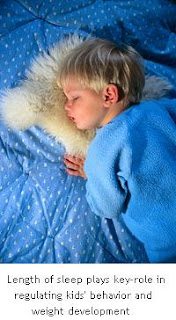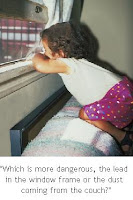 "She is a physician who has gone above and beyond the call of duty, especially in the advancement of the health of women of Prince Albert and northern Saskatche-wan ... I find it simply amazing that she delivered approximately 270 (babies) in Prince Albert this past year," Ajay Krishan, one of her nominators, wrote in a letter to The Prince Albert Kinsmen Club and the Daily Herald.
"She is a physician who has gone above and beyond the call of duty, especially in the advancement of the health of women of Prince Albert and northern Saskatche-wan ... I find it simply amazing that she delivered approximately 270 (babies) in Prince Albert this past year," Ajay Krishan, one of her nominators, wrote in a letter to The Prince Albert Kinsmen Club and the Daily Herald.
Dr. Lalita Malhotra has won Canada's highest civic accolade and counts the 2007 Prince Albert Citizen of the Year as one of her greatest honours.
Last Wednesday she was named the Prince Albert Citizen of the Year by The Prince Albert Kinsmen Club and the Daily Herald.
Malhotra was awarded the Order of Canada in 2006 and the Saskatchewan Order of Merit in 2001.
But this new honour is very important to Malhotra, who has called Prince Albert home for 32 years.
"This is the biggest honour Prince Albert can give me ... When your own community honours you like this, it is totally different. I am very touched, very emotional."
As an obstetrician, Malhotra is known in the province for delivering an stunning average of 250 babies a year.
"Every baby is a thrill and it keeps me going. I feel every child is a challenge to me and it is a learning experience every day. I have no intention of giving up."
Read the rest of the story here
Sunday, January 6, 2008
Physician becomes Prince Albert Citizen of the Year 2007
Posted by
Guy Derla
at
11:07 PM
0
comments
![]()
Tags: award, baby, Canada, children, Obstetrician, physician, Prince Albert, Saskatchewan
Tuesday, January 1, 2008
Calgary moms and company owners recall gourmet baby food
A small company, run by two Calgary mothers is voluntarily recalling some of its gourmet baby food after the Canadian Food Inspection Agency warned the product could harm children with severe peanut allergies.
Some Baby Gourmet products may contain peanut protein or sulphites not mentioned on the label, said the warning issued last Monday.
The baby foods in question include organic Moroccan lamb with couscous, which might contain undeclared peanut protein, and seasonal fruit compote, which contains undeclared sulphites, said Garfield Balsom, a food safety and recall specialist with the food and inspection agency.
undeclared peanut protein, and seasonal fruit compote, which contains undeclared sulphites, said Garfield Balsom, a food safety and recall specialist with the food and inspection agency.Peanuts are not used in any of the locally made foods, but the dried couscous could have come in contact with peanuts in the packing plant before being sent to Calgary, said Jennifer Broe, who launched the company with her sister two years ago.
So far, only one allergic reaction has been reported in connection to Baby Gourmet products. Calgary Health Region officials said Monday the patient suffered an allergic reaction caused by the peanut protein in the product. The patient was treated at a physician's office and did not require hospitalization.
The recall involves foods that were sold at the Calgary Farmer's Market and at Mise en Place in Lakeview Plaza. The products have only been distributed in Calgary.
There has been one reported illness associated with the products, which are common food allergens.
The recipes included in the recall will be discontinued until Baby Gourmet can finish a thorough investigation of all ingredients, said Broe.
"We make this food like it's for our own children. We will definitely take every precaution to look into the recipes and research all the ingredients to make sure everything is listed," she said.
Source: Canada.com
Posted by
Guy Derla
at
12:40 AM
0
comments
![]()
Tags: baby, baby food, Calgary, Calgary Health Region, children, hospital, kids, nut allergy, physician, recall
Saturday, December 29, 2007
Sleep has great effect on behavior and weight of children
 The length of sleep at night, can affect children's behavioral patterns and lead to changes in eating habits, according to a new study conducted by researchers at the University of Auckland, New Zealand.
The length of sleep at night, can affect children's behavioral patterns and lead to changes in eating habits, according to a new study conducted by researchers at the University of Auckland, New Zealand.
Children who slept for less than nine hours a night, were more likely to have behavioral problems and also to become overweight or obese, the study indicated.
"Short sleep duration was associated with a three-fold increased risk of the child being overweight or obese," said Ed Mitchell, the study's author in a release.
"Attention to sleep in childhood may be an important strategy to reduce the obesity epidemic."
The study examined the sleep patterns of 591 children using 'actigraphy' which is a method of charting movement in sleep without the use of invasive tools.
The children were assessed at birth, at one year, at 3½ and at seven years.
The researchers in New Zealand determined that the children spent on average 10.1 hours in bed per night.
This differed at different times of the week, in different seasons and in cases where the kids had brothers or sisters.
The researchers state that the recommended amount of sleep for children in preschool is 11-13 hours a night and 10-11 hours for children who are school age.
The study will be published in the January 1st issue of the Journal Sleep.
Source: CBC
Posted by
Guy Derla
at
11:57 AM
0
comments
![]()
Tags: behavioral disorder, children, health, health research, kids, New Zealand, obesity, pediatrics, sleep, study
Friday, December 28, 2007
House dust greater health risk for kids than lead paint
Canadians may be exposed to a wide variety of metals, chemicals and pesticides on a daily basis as the result of a seemingly harmless domestic nuisance: house dust.
It's a potential health hazard that scientists are only beginning to understand.
Health Canada and the Public Health Agency of Canada have embarked on a landmark four-year national study to determine levels of metals and chemicals in house dust across the country, and how health risks should be addressed.
 Dust typically contains a variety of toxins released by common household products including plastics, electronics, furniture, garden soil and lead paint, which is common in older homes.
Dust typically contains a variety of toxins released by common household products including plastics, electronics, furniture, garden soil and lead paint, which is common in older homes.
Scientists don't know for sure where all the toxins commonly found in dust come from.
They also don't know the typical concentration of metals and other toxins in house dust.
Unlike lead paint on toys or chemicals in plastic, scientists say house dust presents a far greater, unique risk because the loose, free particles can be easily ingested by children crawling on the floor or may be inhaled when dust becomes airborne.
Research has linked lead, flame retardants and pesticides found in house dust with the accumulation of these toxins in children's bodies.
"We've found high levels of lead in house dust is associated with higher blood lead levels in kids," said Paul Lioy, director of the exposure science division of the Environmental and Occupational Health Sciences Institute, at jointly sponsored by Rutgers University and the University of Medicine and Dentistry of New Jersey.
"We don't know what typical concentrations are for metals in house dust and other substances," said Pat Rasmussen, research scientist at Health Canada and principal investigator of the national house dust study.
Read the rest of the story here
Posted by
Guy Derla
at
10:49 AM
0
comments
![]()
Tags: baby, chemicals, children, health, Health Canada, health risk, kids, lead paint, research, study, toxins
Monday, December 10, 2007
McGuinty: smoking in cars with kids is culpable
 Smoking in cars while transporting kids is "reprehensible'' given the dangers of second-hand smoke, but according to Premier Dalton McGuinty, Ontario will have to think a little harder before it will become the first province to pass "invasive'' legislation against it.
Smoking in cars while transporting kids is "reprehensible'' given the dangers of second-hand smoke, but according to Premier Dalton McGuinty, Ontario will have to think a little harder before it will become the first province to pass "invasive'' legislation against it.
Earlier during the the recent Ontario election campaign, McGuinty said 'nay' against banning smoking in cars with young passengers, and called it a slippery slope.
But as health advocates rally around a private member's bill which would give police the right to pull people over for smoking in a car with passengers under the age of 16, McGuinty now says he's open to the idea.
"To one extent, it's pretty invasive,'' McGuinty said Monday after decorating his office Christmas tree with children from the legislature daycare.
"The car is a kind of personal space. On the other hand, as a parent, I think the idea of smoking inside a car is reprehensible. Kids have no choice in the matter at all so I think it's an important debate to have.''
Jurisdictions in the United States and Australia, as well as the town of Wolfville, N.S., have all banned smoking in cars where children are present. In B.C. and Nova Scotia, opposition politicians have tabled private member's bills recently that would also ban the practice across the province.
Private member's bills rarely become law unless they are adopted by the government, but McGuinty said he's going to stay neutral and hear what Ontarians have to say.
"If nothing else, this debate will help to reinforce what we all understand -- that smoking is harmful to all of us but it can be particularly harmful to children,'' McGuinty said. "All those who become aware of the debate will hopefully understand that you shouldn't smoke in a car.''
While tobacco lobby groups say any legislation would be a violation of people's rights, health experts say the risk to children's health is good enough reason to force people to butt out after they buckle up.
George Habib, CEO of the Ontario Lung Association, said the law would be no different than compelling people to buckle their seatbelt or properly install a carseat.
Exposing a child to a hour of smoke in a car is like giving them an entire pack of cigarettes, Habib said. Second-hand smoke has been linked to a host of health problems including ear infections, lung cancer, asthma and heart problems, he added.
A recent Ipsos-Reid poll found the majority of Ontarians were in favour of a ban, including 66 per cent of smokers surveyed, Habib said.
Liberal David Orazietti introduced a private member's bill last week which would allow a police officer to pull over anyone smoking in a car with kids and levy a fine of between $200 to $1,000.Editor:
"It's a shame that it wasn't prohibited to smoke in a car with ANY person yet. I can think of many examples where an adult could also be the weaker party when being transported."
Posted by
Guy Derla
at
5:02 PM
0
comments
![]()
Tags: ban smoking, children, health, kids, law, McGuinty, reprehensible
